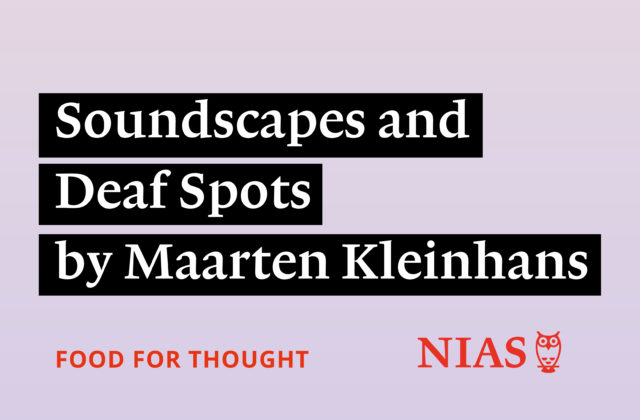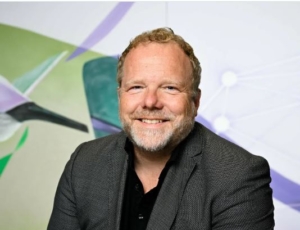The sounds have changed. The pounding of trucks and trains has dampened, the din of lovers of noise has been stamped out. In came the sounds of birds, common inland birds without the sonic force of seagulls that can overpower the screech of a braking tram. And a rare bird I had not seen for decades: the goldfinch, an explosion of colours with wings and a song like a pristine meltwater stream flowing over cobbles.
In came the sounds of bored neighbours wasting water with their high pressure sprayers. Apparently such noisy toys can keep the boys busy for hours. In came the occasional acceleration of a car speeding in the narrow streets of the village. Some people release all their quarantine pains through the right big toe. All in all, civilization did not come to a nasty end yet, such as described in dystopic novels. Some people have real pain and some people have lost loved ones, but it did not happen close to me, as far as I know.
Luck and luxury afford attention to minor pains. The pressure on the ears has been released in this intelligent lockdown. A minor headache dissolved so fast I nearly forgot that I had it. Minor headaches are said to be triggered by:
- muscle tension in the back and neck (a common state in academics),
- exhaustion (a common state in academics),
- carbon monoxide (a common state only in academics with houses heated by coal),
- concussion (only a common state in academics working in old buildings with low ceilings),
- and permanent background noise (a common state in university buildings with poor isolation for noises from outside and in well-isolated university buildings with air conditioning).
So, we escaped the inescapable. I can’t help but enjoy this new soundscape. The blackbird on the roof behind us sings such sophisticated compositions that it took me half an hour to discover the five different phrases sung in a row up to the Da capo. I refuse to feel bad about enjoying this.
But it is hard to hear the silenced voices. Sherlock Holmes famously solved a murder case because the dog did NOT bark in the night (therefore the dog knew the murderer). What am I not hearing that I should hear?
My family, NIAS fellows, collaborators, and the postdocs and graduate students in my team communicate with me. This word is hilarious. ‘Communicate’ is the bare-bonest, meanest and leanest word possible for all the things we do when we interact. In the www.thesaurus.com alone I find 53 very different ‘synonyms’ for communicate, and all of them are more meaningful and more specific.
The seminars at NIAS before the lockdown were nothing but neuron-stretching, skull-expanding experiences. Our ears became amplifiers, our eyes became telescopes and microscopes with filters to light up parts of the world’s spectrum that I had never seen before. I noticed that the discussions were conducted with personalities that shimmered through in overtones and overtures, and sometimes as soundless photon fountains that were impossible to turn a blind eye. All of it contributed to the meteor showers and the conviviality. I miss that. I wonder how many of the speakers realize that they are missing all this during their online seminars. Unlike the birds, we need to reduce our aviation on spaceship Earth, but how to replace meetings in person?
One of the fellows sent me a book. A brilliant classic by Jevgeni Zamjatin that I had never heard of: My (Wij in the Dutch translation, We in the English), written well before Brave New World and 1984. It is about a society with numbers rather than persons, a sterile spaceship rather than nature, and communication, rather than contact. The fellow sent me the book because I was allowed by said fellow to blurt out some associative ideas about said fellow’s seminar. I greatly enjoyed our two hours of talking on yet another planet, which would be horribly tiring online, and on top of this I was given this poetic book. Me. A book present. It felt as if I got a present twice.
This was not the first time that I wondered why scholars from the humanities give so much to others. In the natural sciences, this other planet in the academia, one sees someone wonder all too often whether sharing this or that thought will earn one a co-authorship. In this era After Hirsch, co-authorships are indulgences for going to publication heaven. Apparently, humanities hardly do co-authorships. Virtue is its own reward, but I was awarded such rewards already by the fellows who were willing to listen. I hope that everyone realizes how much there is to miss.
Our most modern means of communication often have no higher quality than those in in prisons in bad American movies from the 1980s. We sit on two sides of the closed door and look at each other through a letter box. Worse, the two-dimensional spacetime on screen often freezes and all I see for minutes is a static, distorted face. We talk to each other through long plastic tubes. Often it sounds like Neil Armstrong et al. doing their quarantine afternoon walk on another planet. Sometimes it sounds like the tube of the vacuum cleaner (switched on). Where are my blind spots, or rather my deaf spots? What is it I don’t hear? What sensory wormhole could I open to detect the stances and overtones? I can’t help comparing our situation with the sounds and emotional range of communication of the Daleks, but I lack Doctor Who’s powers to bring about a happy end.




